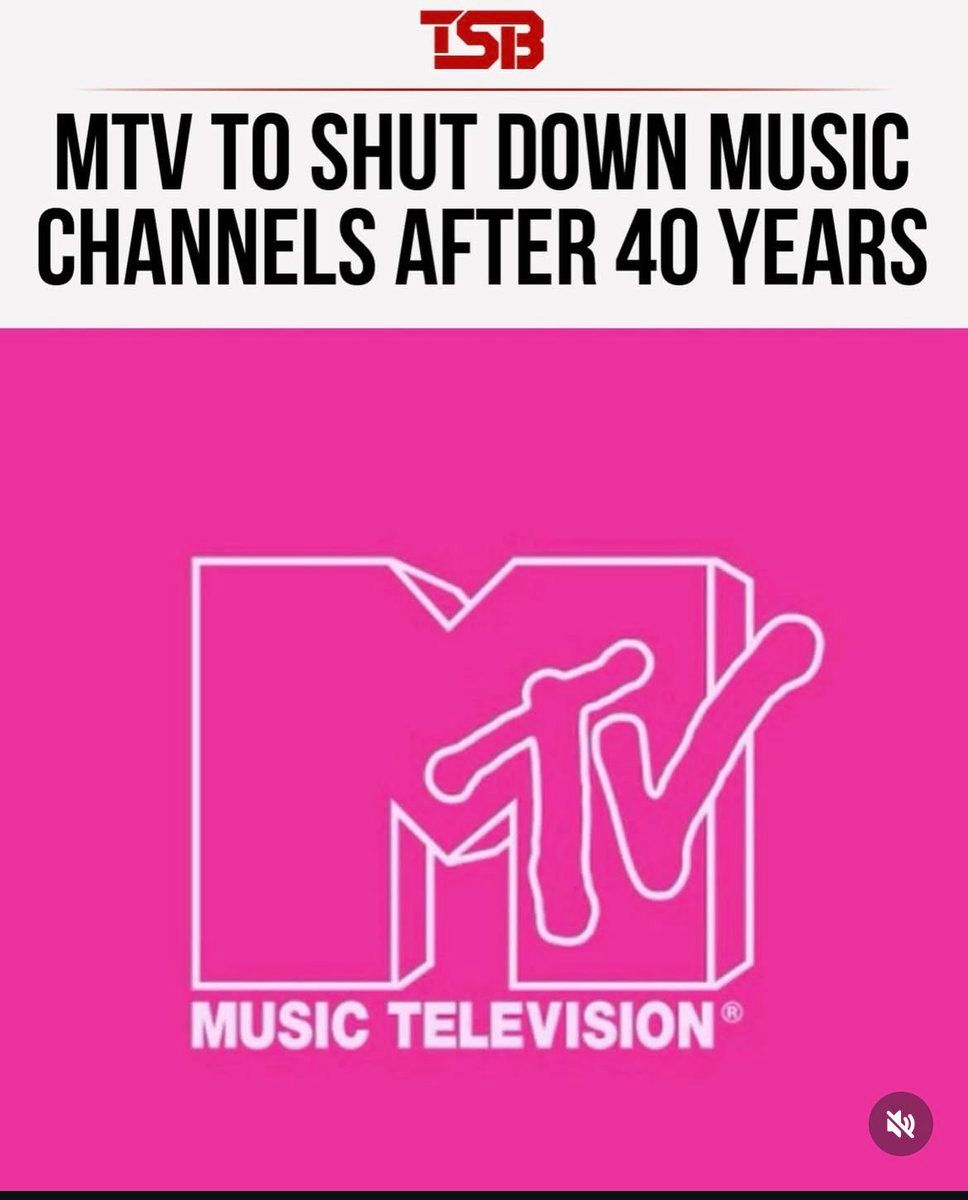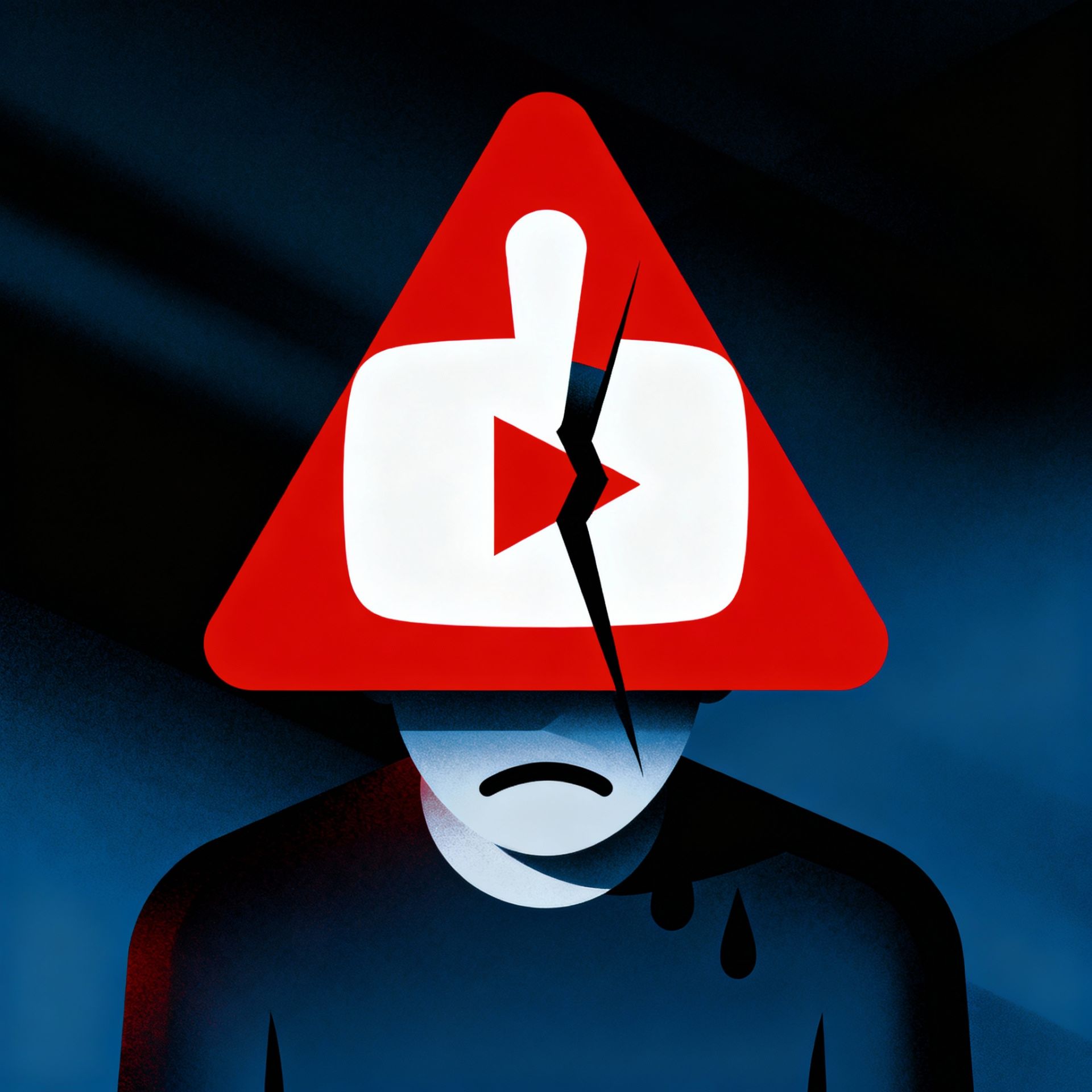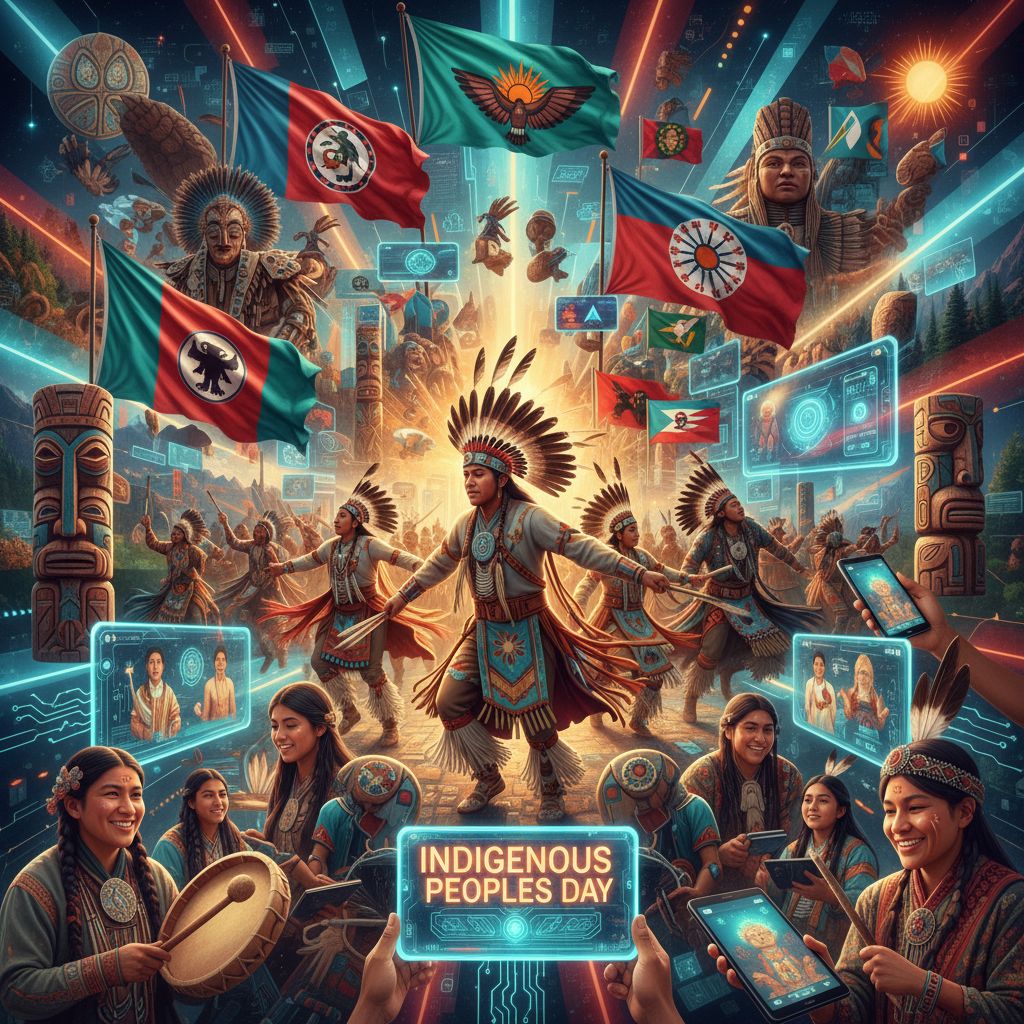After nearly four and a half decades of defining youth culture and revolutionizing how the world consumes music, MTV is pulling the plug on its remaining music channels. Paramount Global announced on October 12, 2025, that five beloved MTV music channels will permanently cease broadcasting by December 31, 2025. This heartbreaking decision marks the definitive end of an era that began on August 1, 1981, with The Buggles' prophetic hit "Video Killed the Radio Star."
The channels meeting their demise include MTV Music, MTV 80s, MTV 90s, Club MTV, and MTV Live. These were the last bastions of MTV's original identity as the world's first 24-hour music video broadcaster, serving as go-to destinations for music videos, live performances, and nostalgic hits that shaped generations of pop culture.
Which Countries Are Losing MTV's Musical Heart?
The shutdown isn't happening globally at once. The closures will first hit the United Kingdom and Ireland, before rolling out across continental Europe and other international markets. Countries expected to lose these MTV music channels include:
Australia
Poland
France
Germany
Austria
Hungary
Brazil
Notably, while these music-focused channels are disappearing, MTV HD (the main channel) will continue operating – but don't expect music videos. The flagship channel has been focused on reality programming like Catfish, The Challenge, Naked Dating UK, and Geordie Shore for years.
The Numbers Behind the Heartbreak
Even with their dedicated fanbases, the writing was on the wall. Recent viewership data from July 2025 showed MTV Music attracted 1.3 million viewers while MTV 90s drew 949,000. While these numbers might seem respectable, they represent only a fraction of the massive audiences MTV commanded during its 1990s and 2000s golden age.
The stark reality? These channels now attract audiences that pale in comparison to their heyday, making them financially unsustainable under Paramount's new strategic focus.

The Corporate Axe: Paramount's $500 Million Cost-Cutting Blitz
This decision didn't happen in a vacuum. The MTV channel closures are part of Paramount Global's aggressive $500 million global cost-reduction strategy. The entertainment giant has been slashing expenses across its portfolio, with the company completing its merger with Skydance Media in August 2025.
The merger created a new entity called "Paramount, a Skydance Corporation," with David Ellison as Chairman and CEO. This corporate restructuring accelerated the closures as the new leadership prioritized streamlining operations and focusing resources on their Paramount+ streaming service.
The cost-cutting hasn't stopped at MTV. In June 2025, Paramount announced layoffs affecting 3.5% of its US workforce, following a previous 15% reduction in 2024. The company also closed Paramount Television Studios in August 2025, which had produced series like Jack Ryan and The Spiderwick Chronicles.
How Streaming Killed the Music Television Star
The brutal truth? Traditional music television can't compete with the on-demand, algorithmic, and interactive experiences offered by digital platforms. Today's music fans have migrated to YouTube, TikTok, Instagram, and Spotify for music discovery and consumption.
45% of YouTube viewership now takes place on TVs, up from 30% in 2020, with monthly reach of 18.8 million UK users aged 16+. Meanwhile, TikTok has been aggressively expanding into TV streaming, even allowing 10-minute videos and securing sports partnerships to challenge YouTube's dominance.
The shift represents a fundamental change in how people discover and consume music:
No more waiting for your favorite song to play on TV
Unlimited access to any music video, anytime
Personalized recommendations based on viewing history
Interactive features like comments, shares, and remixes
Short-form content optimized for mobile consumption
MTV's Golden Age: When Music Videos Ruled the World
To understand the magnitude of this loss, we need to rewind to MTV's revolutionary beginning. Launched at 12:01 AM on August 1, 1981, MTV debuted with the eerily prophetic "Video Killed the Radio Star" by The Buggles. The first words spoken were simply: "Ladies and gentlemen, rock and roll".

MTV didn't just play music videos – it created a cultural phenomenon. The channel introduced the world to Video Jockeys (VJs) like Nina Blackwood, Martha Quinn, Mark Goodman, Alan Hunter, and J.J. Jackson. These personalities became cultural icons themselves, guiding viewers through the nascent world of music television.
The network's impact was immediate and transformative:
By October 1981, record sales of MTV-featured artists were booming
MTV sparked the "Second British Invasion" in 1982
The channel influenced fashion, hairstyles, and youth culture attitudes
Artists had to become visually conscious, not just musically talented
Iconic Moments That Defined Generations
MTV created countless cultural moments that are still referenced today:
Michael Jackson's "Thriller" (1982) – Perhaps the most iconic music video ever made
Madonna's "Like a Virgin" performance – Pushing boundaries and establishing her as a provocative icon
Live Aid coverage (1985) – 16-hour live broadcast that united the world
MTV Video Music Awards – Creating the "Moonman" trophy and memorable award show moments
Prince's legendary performances and videos throughout the 1980s
The Voices of MTV's Golden Era React
Former MTV VJ Simone Angel captured the heartbreak perfectly when she told the BBC: "I am really sad, and I'm a little bit in disbelief... MTV was the place where everything came together. So it really does break my heart".
In a 2023 interview, the original MTV VJs reflected on their groundbreaking role in music history. Nina Blackwood, one of the original five VJs, said: "I imagined it to be like an incredibly cool FM radio station, but on television. I didn't enter wanting to be a television star at all. I genuinely believed that video music would gain traction".
Martha Quinn shared how she got the job after an intern at WNBC radio suggested she audition: "I stopped by the offices one day summer 1981 and somebody looked at me and said, 'hey Martha, you know what you should do? You should do this project that Bob Pittman is doing, it's MTV'" .
The VJs witnessed MTV's transformation firsthand. As Mark Goodman noted in the interview: "There was that period of time where there was that MTV backlash... MTV had become this commercial Colossus and the alternative crowd didn't like us" .
The Slow Death of Music on MTV
MTV's shift away from music didn't happen overnight. The main MTV channel stopped showing music videos in 2011, transferring that content to its sister channels. The network had been gradually pivoting toward reality programming since the late 1990s, with shows like The Real World and TRL representing the bridge between music and reality TV.
By 2025, MTV's programming lineup consists almost entirely of reality shows: Teen Mom, Catfish, The Challenge, Geordie Shore, and Naked Dating UK dominate the schedule. The dedicated music channels that are now closing were the final remnants of MTV's original identity.
Global Fan Reactions: Mourning a Cultural Institution
Social media exploded with nostalgic reactions when the news broke. Many fans initially panicked, thinking MTV was shutting down entirely. One confused fan asked: "So wait, is MTV shutting down or they're just not doing music anymore which they haven't been doing in forever anyway".
The emotional impact spans generations:
80s kids remember discovering New Wave and alternative rock through MTV
90s teens grew up with Total Request Live and the heyday of music videos
2000s viewers witnessed the transition to reality programming
International fans relied on MTV for exposure to American and British music
As one Instagram user poignantly shared: "My first love for dance, which led me to become a dancer, started when I saw Baby One More Time by Britney Spears on MTV".
What This Means for Music Discovery
The closure of MTV's music channels represents more than corporate cost-cutting – it's the end of communal music discovery. Unlike algorithms that create personalized bubbles, MTV provided shared cultural experiences where millions of people discovered the same artists simultaneously.
What we're losing:
Serendipitous music discovery through channel surfing
Shared cultural moments when everyone watched the same premieres
Expert curation by music professionals vs. algorithmic recommendations
Long-form music content like MTV Unplugged and artist documentaries
Cross-generational bridge between music eras through throwback channels
What we're gaining:
Unlimited on-demand access to any music video ever made
Personalized recommendations tailored to individual tastes
Interactive features like comments, shares, and creator responses
Global accessibility without geographic restrictions
Creator monetization opportunities for independent artists
The Future: Will Music Television Ever Return?
While traditional music television appears to be dying, the appetite for music video content remains massive. YouTube's dedicated music section generates billions of views, while TikTok has become the primary driver of music discovery for Gen Z.
Some industry experts believe we might see new forms of music television emerge:
Streaming-native music channels on platforms like YouTube TV
Social media live streams featuring music video marathons
VR/AR music experiences that blend video with immersive technology
Creator-driven music shows on platforms like Twitch and Instagram Live
However, the communal experience that defined MTV's golden age may be gone forever, replaced by personalized, on-demand consumption that lacks the shared cultural impact of appointment television.
The End of an Era
As 2025 draws to a close, we're witnessing the final chapter of a cultural institution that shaped four decades of music, fashion, and youth culture. MTV's music channels didn't just play videos – they created a visual language for popular music that influenced everything from artistic expression to marketing strategies.
The five channels shutting down – MTV Music, MTV 80s, MTV 90s, Club MTV, and MTV Live – served as time capsules, preserving the golden age of music television for nostalgic viewers and introducing classic videos to new generations. Their closure leaves a void that streaming algorithms and social media feeds, for all their convenience and personalization, cannot truly fill.
December 31, 2025, will mark more than just the end of some cable channels – it represents the definitive conclusion of music television as a cultural force. The medium that once made superstars out of artists and gave birth to the concept of visual albums is officially relegated to history books and YouTube compilations.
For those who grew up with MTV as their soundtrack, this isn't just corporate restructuring – it's the death of a friend who introduced them to their favorite bands, fashion trends, and cultural movements. As the final music video fades to black on these channels, we're not just losing television programming; we're losing a shared cultural experience that united music lovers across the globe.
The revolution that began with "Video Killed the Radio Star" is ending with streaming services killing the video star. MTV's music channels may be signing off forever, but their impact on music culture will echo through every music video, every visual album, and every artist who understands that in the modern age, you need more than just a great song – you need a great video to match.



